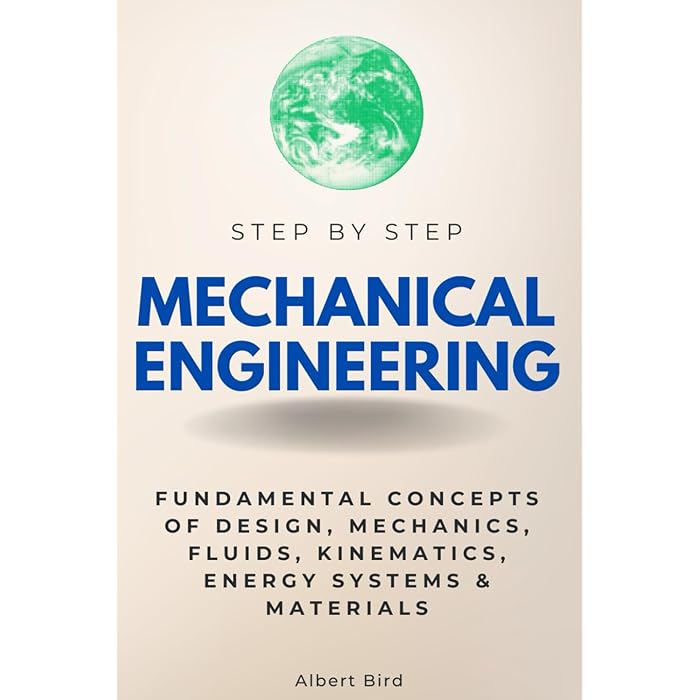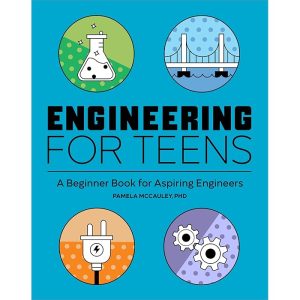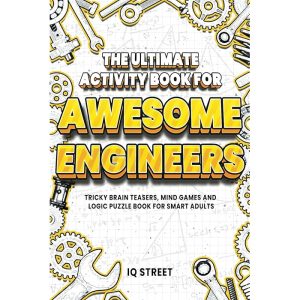Description
Mechanical engineering is a broad and complex field, covering a wide range of subjects and concepts. To understand how to approach learning mechanical engineering in a “step-by-step” manner, we can break it down into key stages or phases, from foundational concepts to advanced applications. Here’s a step-by-step guide:
### **1. Understanding the Basics of Mechanical Engineering**
Before diving into more complex topics, it’s important to build a solid foundation in the basic principles.
#### **Key Topics:**
– **Physics**: Mechanics, thermodynamics, fluid dynamics, materials science.
– **Mathematics**: Calculus, differential equations, linear algebra, vector analysis, and probability.
– **Statics and Dynamics**: Understand forces, moments, and motion, as well as the behavior of solid bodies in equilibrium.
– **Materials Science**: Basic understanding of different materials (metals, polymers, ceramics) and their properties (strength, elasticity, thermal conductivity).
#### **What to Do:**
– Study **high school level physics** and mathematics first if you’re starting from scratch.
– Learn the fundamentals of **statics** (forces in equilibrium) and **dynamics** (forces causing motion).
– Build an understanding of the **different material types** and their mechanical properties.
—
### **2. Core Concepts in Mechanical Engineering**
Once the basics are in place, the next step is to learn the core concepts of mechanical engineering. These are essential for understanding the analysis, design, and application of mechanical systems.
#### **Key Topics:**
– **Mechanics of Materials**: Learn about stress, strain, and material deformation. This includes concepts like tension, compression, torsion, and bending.
– **Fluid Mechanics**: Understand fluid properties, fluid dynamics, and thermodynamics as they apply to gases and liquids.
– **Thermodynamics**: Study the laws of thermodynamics, energy conversion, heat engines, and refrigeration cycles.
– **Kinematics and Dynamics**: Focus on how machines and mechanical systems move. This includes mechanisms such as linkages, cams, and gears.
– **Machine Design**: Study the process of designing mechanical components, from basic parts to complex systems, considering factors like load, stress, and material choice.
– **Control Systems**: Learn the basics of how mechanical systems can be controlled through feedback mechanisms.
#### **What to Do:**
– Study **statics** and **dynamics of rigid bodies** in depth.
– Take courses on **thermodynamics** and **fluid mechanics**.
– Get familiar with the principles of **mechanical vibrations** and **acoustics**.
—
### **3. Applying the Knowledge: CAD and Simulation**
Once you’ve built a good theoretical foundation, the next step is to learn how to apply your knowledge using modern engineering tools. Computer-Aided Design (CAD) software and simulation tools are key to this stage.
#### **Key Topics:**
– **CAD Software**: Learn how to create 2D and 3D models of mechanical components. Popular software includes **SolidWorks**, **AutoCAD**, **Fusion 360**, and **CATIA**.
– **Finite Element Analysis (FEA)**: Simulate stress, strain, and deformation in mechanical components using software tools like **ANSYS** or **Abaqus**.
– **Computational Fluid Dynamics (CFD)**: Simulate the behavior of fluids in systems such as pipes, ducts, or heat exchangers using tools like **ANSYS Fluent** or **OpenFOAM**.
– **Manufacturing Processes**: Learn how designs are fabricated through processes like machining, welding, casting, and additive manufacturing (3D printing).
#### **What to Do:**
– Practice using **CAD software** to design simple parts and assemblies.
– Experiment with **FEA and CFD simulations** for common engineering problems.
– Explore **manufacturing methods** and how they impact design decisions.
—
### **4. Advanced Mechanical Engineering Topics**
At this stage, you can delve deeper into more specialized and advanced topics, depending on your interests or career path. This will help you specialize in certain areas of mechanical engineering.
#### **Key Topics:**
– **Heat Transfer**: Learn about conduction, convection, and radiation, and their application to cooling, heating, and energy systems.
– **Vibration Analysis**: Study the behavior of systems under vibratory motion, including resonance and damping.
– **Robotics and Mechatronics**: Understand how mechanical systems are integrated with electronics and control systems to create robots and automated systems.
– **Advanced Manufacturing**: Study emerging technologies like additive manufacturing (3D printing), smart materials, and nanotechnology.
– **Renewable Energy Systems**: Learn about the design of systems like wind turbines, solar panels, and hydroelectric plants.
– **Automotive and Aerospace Engineering**: Specialized fields that focus on the design and development of vehicles, aircraft, and spacecraft.
#### **What to Do:**
– Take specialized courses in **robotics**, **heat transfer**, or **vibration analysis** based on your interest.
– Research **sustainable energy solutions** and advanced manufacturing techniques.
– Participate in **internships** or **projects** related to aerospace, automotive, or renewable energy systems.
—
### **5. Problem Solving, Projects, and Internships**
Mechanical engineering is an applied field, and it’s essential to apply the knowledge gained in real-world situations.
#### **Key Topics:**
– **Project-Based Learning**: Engage in projects like designing a mechanical system (e.g., a small robot, a heat exchanger, or a wind turbine).
– **Internships**: Get hands-on experience in the industry. Work in companies that specialize in design, manufacturing, or research.
– **Capstone Projects**: Typically in the final year of your mechanical engineering degree, where you work on a large-scale project that integrates all the knowledge you have learned.
– **Problem Solving and Critical Thinking**: Constantly develop your ability to approach complex problems with systematic methods and creative solutions.
#### **What to Do:**
– Work on **personal projects** or **team projects** to apply your skills.
– Participate in **engineering competitions** (e.g., SAE Baja, Formula SAE, robotics challenges).
– Seek out **internships** or **co-op opportunities** to gain practical experience in the field.
—
### **6. Continuous Learning and Professional Development**
Mechanical engineering is a rapidly evolving field, so continuous learning is essential.
#### **Key Topics:**
– **Advanced Simulation Techniques**: As tools like FEA and CFD become more advanced, staying up-to-date with the latest methods is important.
– **Industry Standards and Certifications**: Familiarize yourself with industry standards such as ASME, ISO, and ASTM. Consider pursuing certifications like **PE (Professional Engineer)** if you’re looking to become licensed.
– **Emerging Technologies**: Stay informed on cutting-edge developments like AI in manufacturing, autonomous vehicles, and renewable energy systems.
– **Networking**: Join professional organizations like **ASME** (American Society of Mechanical Engineers) to keep learning, attend conferences, and meet other professionals.
#### **What to Do:**
– Regularly take courses or attend workshops on new topics.
– Consider pursuing a **master’s degree** or **Ph.D.** in a specialized field like robotics, aerospace, or thermofluids.
– Become a member of **professional societies** like ASME and attend conferences or seminars.
—
### Conclusion





Reviews
There are no reviews yet.